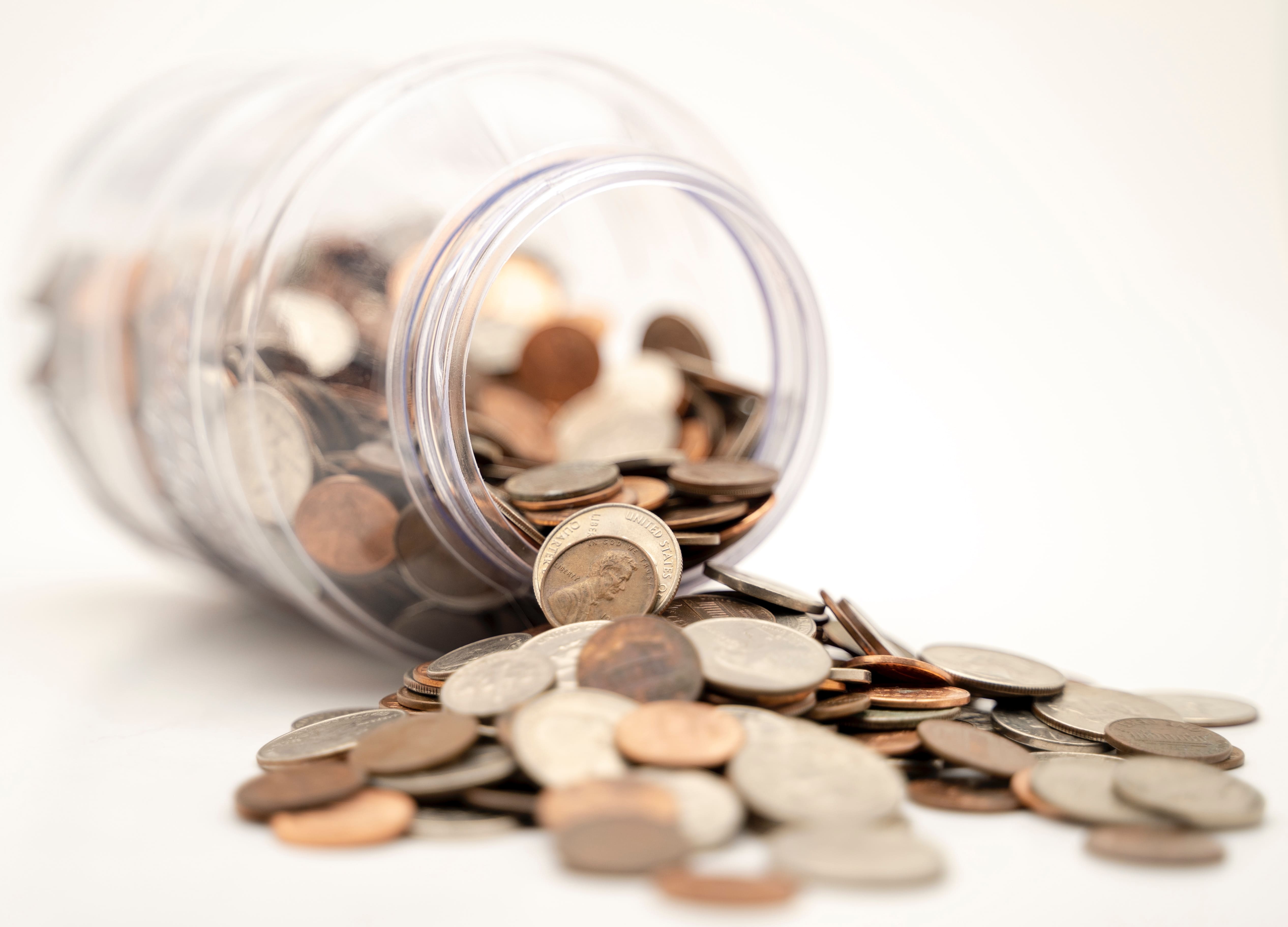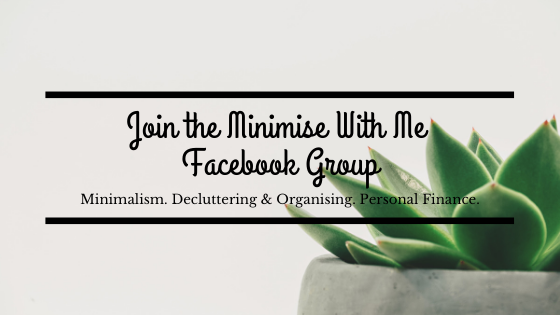One of the reasons many of us are broke and don’t realise it, is because we’re all doing the same thing. We see friends, family and colleagues and those around us buying new cars, taking on large mortgages, buying the latest gadgets and accessories. When everyone else is doing it, it can be hard to admit the truth, that maybe you are broke?
Being broke will have a different definition for each person.
To me, being broke is not having enough money to pay for things in cash.
It’s the person with no Emergency Fund to cover unexpected emergencies like a car breakdown. It’s the person who spends every dollar they earn and saves none. It’s the person who has debt they can’t repay, or that they can only afford the minimum repayments. Or the person who is behind on their bills.
Maybe you’ve convinced yourself that you aren’t broke – that’s as long as your car doesn’t break down. Or you don’t lose your job. Or have to fork out for an unexpected insurance excess.
Maybe it’s easier to believe you aren’t broke whilst the times are good, but with one unplanned financial emergency you might be faced with some harsh truths about your finances.
The important thing to remember is not to give up hope! Being broke doesn’t have to be permanent. Although your “brokeness” won’t disappear overnight, every little effort you make is a step in the right direction.
These 14 reasons why you might be broke below might help give you a new perspective on your finances and help you take the necessary steps you need to take to leave your broke days behind you.
**This post contains affiliate links. If you make a purchase of a product from the links in this post I will receive a small commission, at no cost to you. This allows me to keep my blog advertisement free and support the running costs of my blog. I only recommend products I believe will add value to others and that I love myself.**
14 Reasons Why You Might Be Broke
- You’re saddled with debt
You might be broke if you are snowed under by a large amount of debt. Are you the not-so-proud owner of a car loan, student debt & credit card with a balance? The repayments on those debts can quickly eat away a large chunk of your paycheck each pay period. Once you add a few subscriptions, dining out a few times, increasing grocery, utility & petrol bills and other expenses like child care you might find yourself struggling to keep your head above water.
It might be possible to afford the minimum repayments and use that as your justification to keep up current spending habits, but that doesn’t mean you won’t get to a point where it is going to be harder and harder to keep your head above water, financially speaking.
When you take into account interest rates increase, high cost of living, and stagnant wages if you haven’t curbed your excess spending and reliance on credit, that so-called manageable minimum repayment won’t stay manageable for long.
2. You have one or more car loans
When you see friends and family posting about their new wheels, it can be very tempting to get a new car and car loan to go with it. USA Today reports that Americans purchasing new cars in 2018 agreed to pay an average of $551 per month for 69 months according to car-buying advice site Edmunds. That is a lot of money going out the door not even taking into account food, utilities and housing costs!
Financial Expert Dave Ramsey’s ‘the car rule’ advises you should not invest more than half your household income into things with motors, that go down in value. If you are earning $60k and you have a vehicle that is worth $35k with a similar car repayment, it might be one of the reasons you might be broke and time to consider selling that car. If you are living above your means when it comes to your car, it might be time to consider selling your vehicle for a more affordable one. You can always buy that car of your dreams later on when you have the cash!
3. You still have cable
With subscription services like Netflix available and a vast array of digital channels coming onto the market, there is no need to keep paying expensive monthly cable bills. Swapping out the $50 a month Foxtel subscription for a $9.99 Netflix one will save you $480 annually or close to $5,000 over ten years! If you are paying for the top of the line Cable at $100 a month, double that figure! See what I mean? That’s some serious *cha-ching*!
Not to mention you will avoid wasting valuable time and attention listening to those never-ending ads that you don’t get with services like Netflix! (And here’s hoping it stays that way!)
So if you are still paying lots for your cable, why not cancel it and see if you even miss it? You can always get it back if you really feel it adds value to your life.
4. You try and keep up with the Jones’
If you constantly give in to pressure to buy the things that everyone else around you have, you are going to potentially end up living above your means.
Are you working in a high-paying field with other high earners and trying to keep up with the pressure to buy and drive only the best? And get every beauty treatment under the sun to “look as good” as everyone else?
Stop and think for a second before you rush out to buy the next ít’ thing. Consider:
- Do you earn similar money to them? Are you trying to live the Kardashian lifestyle on an office assistants wage and making unreasonable expectations of your income?
- Do you already have enough of what you are buying or something equivalent? Maybe you already have a sufficient makeup collection or wardrobe and you might need to shop more intentionally?
- Is it possible, those around you are buying all their new awesome stuff with credit cards and are struggling to keep up with repayments?
Trying to keep up with the Jones’s is a race to the bottom and one of the reasons you might be broke. Consider spending your time and attention on people who make you feel good about yourself and accept you for who you are rather than making you feel inadequate based on what you can or can’t afford.
5. You don’t pay yourself first
You look forward to payday every week or month only to realise days later that you’ve spent all your money and have to scrounge what coins you can find in the bottom of your handbag or what notes you can locate your pants in the laundry hamper. If you don’t have a plan in place for your money from the moment it goes into your account, it is going to get frittered away before you even realise it’s all gone.
With one simple strategy, you can make living paycheck to paycheck a thing of the past.
By creating a Zero-based budget you can give your dollars a job before they are spent and make sure your spending is prioritised to not just your needs and wants, but your financial goals.
Setting up an automatic savings transfer to transfer your goal savings amount to a separate savings account each payday ensures you have funded your financial goals before the money is spent. Soon enough I promise, you won’t even miss it and will revel in watching it grow month to month!
6. Shopping is your hobby
One of the reasons you might be broke is if you use shopping as a hobby. If you shop when you are bored, sad, happy, for entertainment, or to be social, you might be heading for a life saddled with debt. Particularly if your shopping trips are happening more frequently. If you would describe shopping as your main hobby, it might be time for you to branch out and get some new ones.
One way to retrain your consumerist habits is to declutter your home so you know what you do and don’t have and create a Capsule Wardrobe of clothing you love to remove the temptation to be on the lookout for more clothes.
7. You don’t invest time to learn about finances
One of the reasons you might be broke is because you’ve never taken the time to learn about finances.
A common habit with millionaires is they read 1-2 books every month! And if you’re broke, reading the occasional finance book is a great place to start. Even just reading one is going to jump-start your financial knowledge. With apps like Audible you can easily listen to one on your morning commute to work.
You can read more about my favourite financial books here.
You might also consider investing in a financial coach to help your gain clarity around your finances and help you work towards your financial goals.
8. You don’t have a budget
One of the reasons you might be broke is if you don’t have a budget. This means that you can’t tell your money where to go and you’re probably going to spend more than you planned to, each pay. When you tell every dollar where to go, you can take back control of your money and make sure more of your hard-earned money is going where you want it to, whether that be to your retirement account, savings, investments, or even just spending your money more intentionally.
9. Your housing is unaffordable
Most financial experts suggest that you should keep your housing costs to 30-35% of your combined after-tax household income. If you are paying 30% or more of your after-tax household income to your rent or mortgage, it might be one of the reasons you are broke. It’s a term most refer to as ‘house poor’.
If you are living in a 4 bedroom home with rooms that are sitting unused most days of the week, and finding it hard to pay your mortgage or rent, it might be time to consider downsizing.
Even a $100 a week reduction in rent can add $5,000 to your annual savings total or could be used to help pay down your debts quicker. You may even need the extra space, but it might be time to consider temporarily downsizing for a year or so until you can get ahead financially.
If your home is pushing more than 30-35% of your after-tax household income, it might be time to at least consider your options when it comes to reducing your housing costs.
Selling a house comes with other costs such as stamp duty, so this might be more expensive and not so helpful. If that is the case, you could consider other options to save on housing costs such as renting out part of your home such as your garage or shed for storage, or your driveway, or even a spare room.
Check out these 13 benefits of a smaller home to help you understand how downsizing might not be such a bad thing.
10. You only pay the minimum repayment on your debts
If you are only paying the minimum repayments on your debts, it’s going to be hard to ever get on top of your debt. If you are roped into a 7-year car loan as well as credit cards that could take 10 years to pay off, that’s a lot of dollars that are not going to your financial future.
It can be easy to live in debt denial when you can meet the minimum repayments, but all it takes is a job loss, a medical emergency, or a car breakdown and it can throw a huge spanner into your finances and make it difficult to meet your repayments, even just the minimums.
Don’t live your life on the financial edge and try and convince yourself you are not broke. Break the debt cycle!
11. You surround yourself with other spenders
Do you spend the majority of time with people who encourage you to spend? Is there a friend that constantly wants you to go for expensive beauty days or to high-end restaurants? Or one that drags you shopping and then insists that you have to buy something because you can’t possibly leave empty-handed? Or maybe you just enjoy watching haul videos on YT?
Surrounding ourselves with people with different (or lacking) financial goals can impede the ability of your savings and keep you broke. It’s never fun being the one to say no to nights out, or a trip with friends, but it is a must if you are want to say goodbye to #thatbrokelife.
Be honest with your friends and let them know that you are trying to improve your finances and pay off debt and that you would love to come out and see them, but suggest some more frugal ideas that won’t hurt your budget. You might even find that some of them are happy to help you participate in more budget-friendly catch-ups and you might even inspire them to have a look into their finances.
12. You don’t have Financial Goals
If you are just coasting through life without giving any thought to your financial goals you might be broke. No one saves money, invests in their retirement funds, or pays off their debt by accident. These things all take thought, intention and action.
Start setting yourself some financial goals and take control of your finances and say no to being broke!
Some of your financial goals might be:
- To review your retirement account performance
- to create a budget
- to sell your stuff to help you save up an Emergency Fund
- to pay off your debt faster
- pay off your mortgage or save up a house deposit
- save for a holiday to be paid in cash
- save up for your next semester of college
It doesn’t matter how big or small your financial goals, the key is deciding on them, writing them down, and making plans to achieve them within your chosen time frame.
13. You don’t have an Emergency Fund
If you don’t have a rainy day fund, you are opening yourself to unnecessary stress and financial hardship.
When you are going through a stressful event such as a car accident, injury, or another emergency, you don’t want to have that added stress of worrying about how you are going to pay for things. Emergencies are going to happen. Instead of just hoping for the best, take action and plan ahead. Put away an Emergency Fund of 3-6 months of expenses to give you peace of mind.
I guarantee you, at some point, it might not be next month or even this year, but you will feel a lot better knowing that you have that extra cash there ready to go to cover any unexpected emergencies.
14. You don’t earn enough
Sometimes you have to face the elephant in the room, that you don’t earn enough money to cover your lifestyle. But don’t feel defeated, it doesn’t have to stay that way. Here you have two options. You can earn more income or cut your expenditure.
Consider the following options if you are struggling to make ends meet:
- Decrease expenses so the pressure to earn more is reduced I.e. sell the second car if you can do without it, cook more at home, cut the cable, tell your kids they can only choose one after school activity this year – you get the idea.
- Pick up a Side Hustle, here is a list of 40 Side Hustles to get you started in addition to your current job
- Ask for a raise. If you have been going above and beyond at work and your pay review period is coming up it might be a good time to try and request a raise.
- Get a better paying job – if you are not earning much in your current job, it might be time to broaden your pay horizons and get a better paying job.
- Do overtime at your current job – if possible, ask your current employer for overtime or extra hours so you can boost your income.
Minimise With Me Financial Coaching
If you want learn how to spend with intention and take the stress and anxiety out of your money, book in for a free Q&A call to see how financial coaching can help you gain clarity around your finances! You can learn more about Minimise With Me Financial Coaching here.
What does a debt-free future look like for you? Let me know in the comments how your future would change if you could pay off your debt?
[Photo by Michael Longmire @ Unsplash.com]










